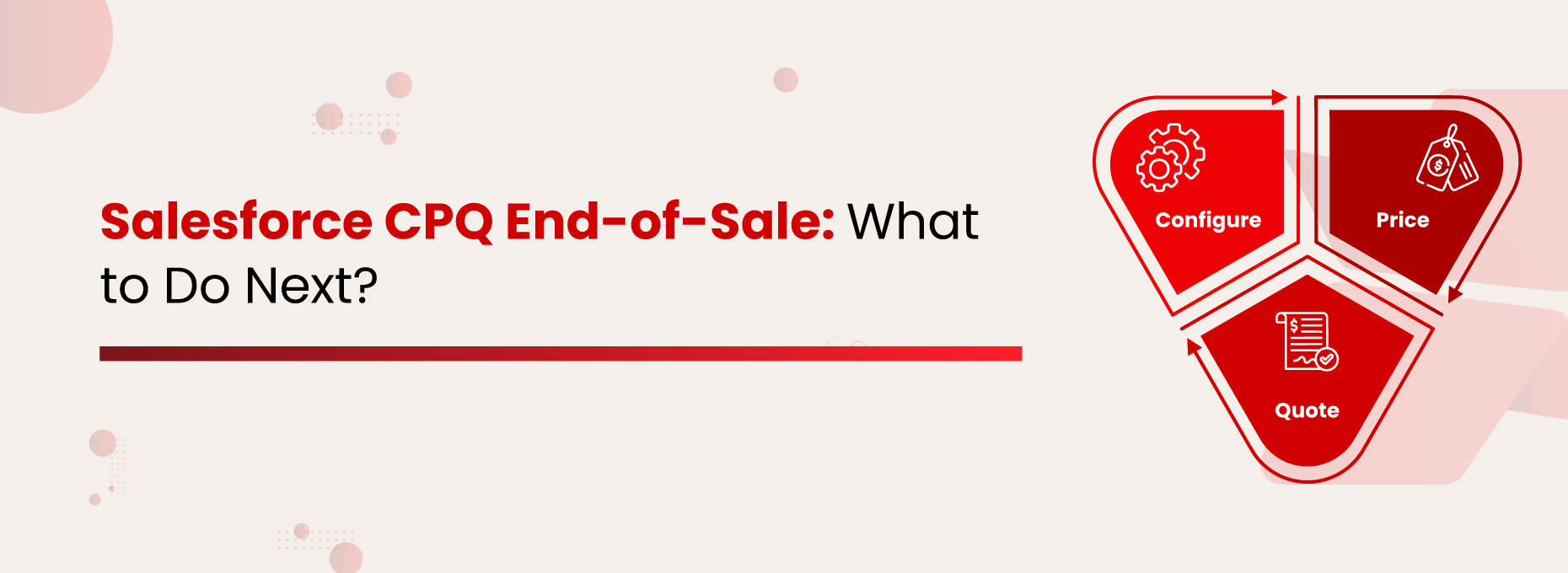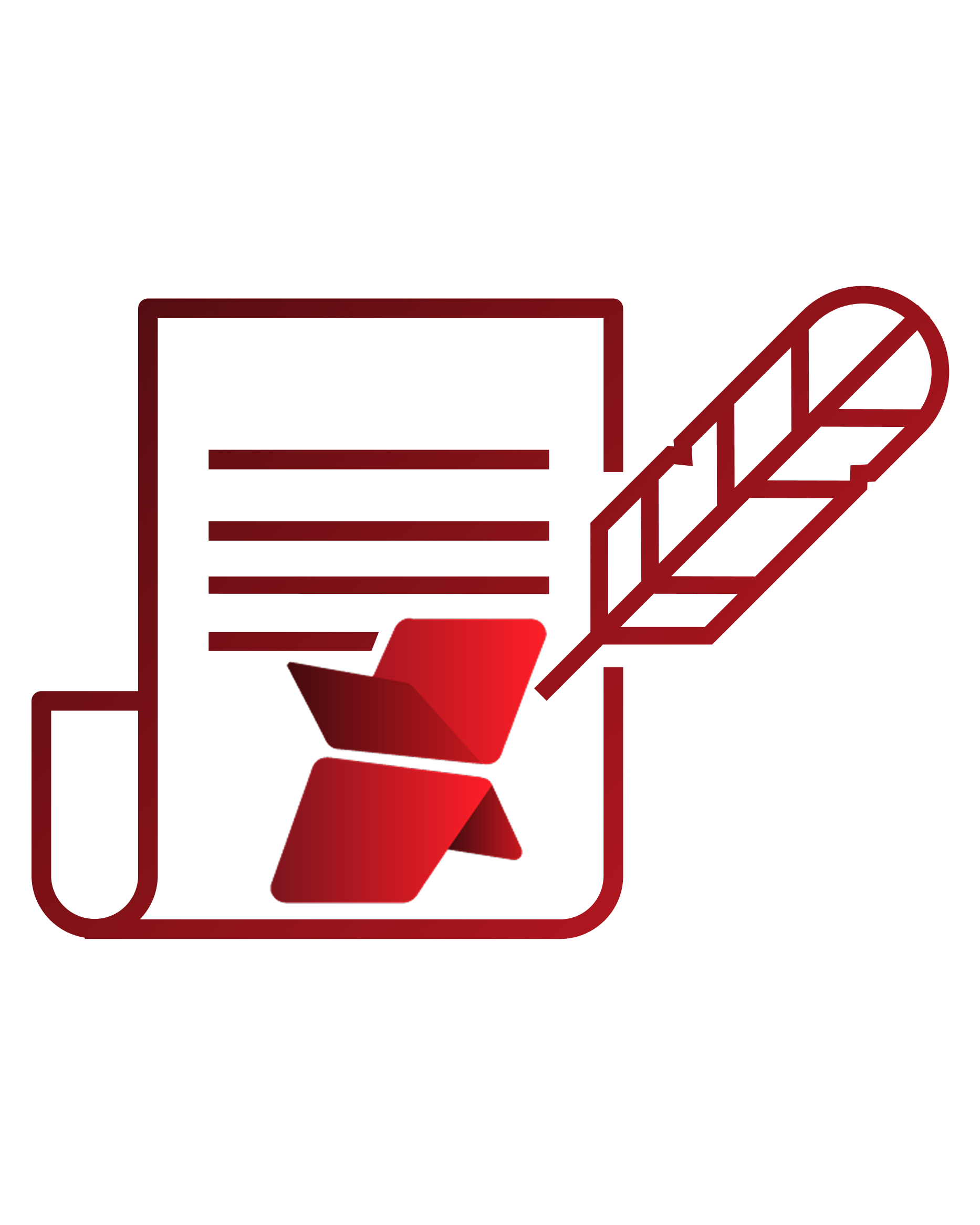Poornima G
In early 2025, Salesforce confirmed that its flagship CPQ solution has entered “end‑of‑sale” (EOS) status. It means that no new Salesforce CPQ licenses will be sold to new customers. Existing customers retain full access, support, and license renewals—for now. No new features or roadmap enhancements will be delivered.
EOS is not the same as End‑of‑Life (EOL). The product isn’t being forcibly retired yet, but Salesforce’s investment is squarely focused on its successor: Revenue Cloud Advanced and Revenue Cloud Billing.
How the End of Salesforce CPQ Affects Existing Users
For organizations currently using Salesforce CPQ, the EOS announcement isn’t an immediate shutdown, but it does bring some concerns:
Support & Maintenance Slowdown
Bug fixes, patches, and customer support are slowing down, as resources shift to new platforms. While standard support remains in place, response times are increasing and prioritization is minimal.
No New Features
CPQ is now frozen in time, which means there’ll be no enhancements, no AI roadmap. Improvements implemented over the past four years are minimal, and now, history.
Cost & Maintenance Risk
Existing customers may face rising IT costs, with outdated customizations becoming brittle at a higher cost, without platform updates, integrations, and add-ons risking failure over time.
Stagnating Ecosystem
Partner expertise is drying up: consultants, systems integrators, and ISVs are pivoting away from outdated CPQ. Hiring certified CPQ talent could become more difficult and expensive.
No Migration Path
Revenue Cloud Advanced (RCA) is not a like-for-like upgrade; it’s a rebuild, not a plugin. Data, configuration, pricing, and quoting logic all need re‑mapping into new objects and processes.
What Led to the End-of-Sale for Salesforce CPQ?
Even before the end-of-sale announcement, CPQ was running into foundational issues:
- Narrow coverage: CPQ does a decent job with quoting, but that’s where it stops. It doesn’t natively support billing, subscriptions, or revenue recognition, leaving users to patch in other tools to handle the full quote-to-cash process.
- Manual-heavy: Custom pricing, special approvals, and exceptions often can’t be handled with automation. Admins and sales teams end up resorting to manual overrides or custom scripts, which are costly in time and prone to error.
- Scaling issues: As businesses grow, so do their pricing models. CPQ starts to stumble with large product catalogs, multi-layered pricing structures, or anything usage-based. It simply wasn’t built for that kind of complexity.
- Fragmented integrations: To fill in the gaps (like billing or rev rec), companies often bolt on other managed packages. This not only makes the tech stack heavier but also leads to slower performance, disjointed workflows, and higher maintenance overhead.
Alternatives to Salesforce CPQ
With Salesforce CPQ reaching end-of-sale, now is the ideal time to explore alternatives. Transitioning to newer CPQ solutions allows businesses to future-proof operations, reduce technical debt, and adopt more efficient, AI-driven quote-to-cash processes tailored to today’s dynamic market demands.
Revenue Cloud Advanced (RCA) and Revenue Cloud Billing (RCB)
- RCA: A modern, API-first, Salesforce native solution built on standard objects with intelligent quoting, pricing procedures, AI-driven approvals, and contract management.
- RCB: Extends this with billing, invoicing, payments, and revenue recognition—delivering a full end-to-end suite.
However, there are key considerations:
- Requires multiple licenses (RCA, RCB, Revenue Lifecycle Management, etc.).
- No direct migration path from traditional Salesforce CPQ.
- Steeper learning curve for admins, architects, and users.
- Longer implementation timelines and higher overall costs.
Third-Party CPQ Solutions
There’s a growing market of CPQ-focused AppExchange solution providers offering robust, Salesforce-integrated tools. These modern CPQ solutions are often:
- More flexible and industry-specific.
- Faster to implement with pre-built templates.
- AI-enhanced, with guided selling, deal optimization, and dynamic pricing.
- Often more cost-effective for mid-market and scaling businesses.
Choosing the right third-party CPQ depends on your current Salesforce setup, pricing models, and future scalability needs.
2X Faster Salesforce Quote-to-Cash With Document Automation
XfilesPro DocGen: Move Faster From Salesforce CPQ to Q2C Process
As Salesforce CPQ approaches the end of its sales cycle, many companies are rethinking how they handle their sales processes. This isn’t just about switching tools; it’s a chance to completely change how they manage everything from creating quotes to collecting payments. The aim is to make the entire process faster, more efficient, and ready for future challenges.
That’s where XfilesPro enters the picture as a purpose-built solution.
Instead of just filling a gap in the CPQ system, XfilesPro improves and speeds up your entire process from quote to cash. It works closely with Salesforce to make quoting easier, automate document management, and eliminate delays in moving from contract to payment.
Speed Up Sales with Automated Document Generation
With Salesforce CPQ phasing out, you might be thinking: “What about all the quotes, proposals, and contracts we generate every day?”
A Detailed Guide for Salesforce Document Generation Process
It also supports:
- Custom or Pre-Approved Templates tailored to your brand and legal standards.
- Dynamic Data Mapping from Salesforce records and objects.
- Automated Approval Routing directly from Salesforce workflows.
- Integrated E-Signature support for fast, compliant sign-offs.
- User-friendly interface that requires no complex training.
Streamline File Management for CPQ
The CPQ process includes a ton of files. Quotes, MSAs, SOWs, SLAs—the list grows fast. And with Salesforce’s storage limits, it doesn’t take long before you’re hitting walls.
You can store documents externally (on platforms like SharePoint, Google Drive, or S3) while still accessing and managing them directly within Salesforce.
With powerful Salesforce document management features like:
- Folder structures for easy access and organization.
- Automated file migration based on predefined criteria.
- Access controls to prevent unauthorized access.
- File/folder preservation to safeguard important documents.
XfilesPro makes file handling seamless.
This helps you stay compliant, free up valuable Salesforce storage, and gain additional benefits like version control, secure sharing, and improved team collaboration.
We’ve explained in depth how a simplified CPQ process can accelerate your quote-to-cash journey—read the full blog here.





